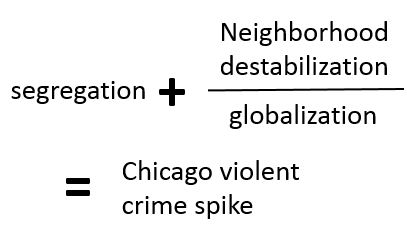Population estimates released last week by the U.S. Census Bureau show that Chicago’s population has declined for the third year in row.
According to the latest estimates, Chicago’s population fell by about 350 in 2014, by just under 5,000 in 2015 and by more than 8,600 in 2016. Among the nation’s 50 largest cities, Chicago is the only city to lose population each year since 2013 and for those population losses to worsen each time. read more »























